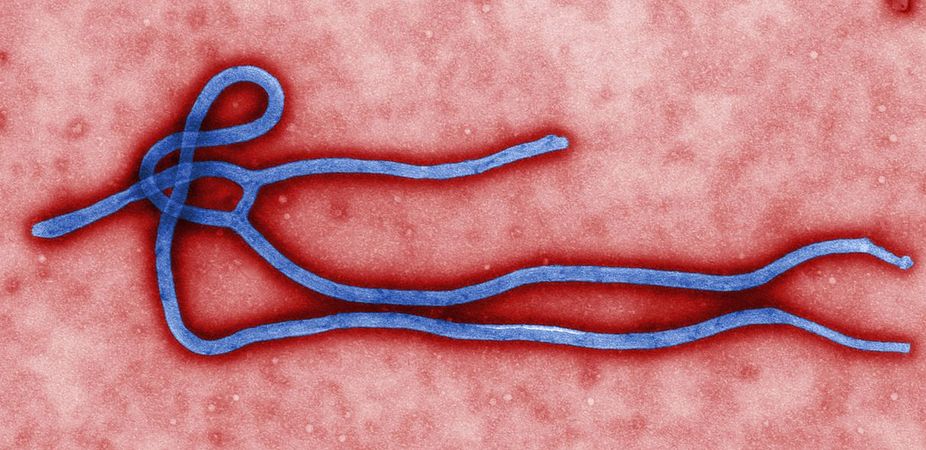Why Are We So Afraid of Ebola?

Despite reassurances from health officials that Ebola is unlikely to spread in the United States, concerns about the disease in this country have grown since the first U.S. case was announced last week. But why does Ebola scare us?
In a recent survey from the Pew Research Center, about 11 percent of Americans said they were "very worried" that they or a family member would be exposed to the Ebola virus. Another 21 percent were somewhat worried about exposure to the virus. The survey was conducted between Oct. 2 and Oct. 5, just after the Centers for Disease Control and Prevention announced that a man in Dallas, Texas, was the first person to be diagnosed with Ebola in the U.S.
Also this month, the CDC has received more than 800 calls daily from people who are concerned that they or someone else has become infected with Ebola. Before the Dallas case, that number was about 50, CDC director Dr. Tom Frieden said.
In Dallas, many parents have kept their children home from school, even though the CDC has emphasized that Ebola only spreads by contact with the bodily fluids of someone showing symptoms of the disease. [5 Viruses That Are Scarier Than Ebola]
Although most Americans seem to be going about their daily lives without fear of Ebola — indeed, most people in the Pew survey said they were either not too worried, or not at all worried about the virus — there is still a concern out there that is disproportional to the risk, said David Ropeik, a consultant in risk perception and author of "How Risky Is It, Really? Why Our Fears Don't Always Match the Facts" (McGraw-Hill, 2010).
That's because humans in general are limited in their ability to make truly rational judgments about risk.
"We rarely have the time, or the smarts, or the raw information to make a fully informed judgment about anything," Ropeik said. "Life requires choices faster than that."
Get the world’s most fascinating discoveries delivered straight to your inbox.
So humans have evolved mental shortcuts that help us make quick sense out of partial information, Ropeik said. "We take bits of information — that come in quickly from a news story, or friend — and turn that into a judgment," Ropeik said. Humans will look for certain characteristics to help them judge quickly whether something is scary, Ropeik said.
One of these characteristics is whether something is new, or familiar. Something that is new is scarier because people don't have past experience with it, and they don't know how it will play out, Ropeik said. That's why Ebola may seem scarier than the flu (which Americans have experience with), even though the flu kills between 3,000 and 49,000 people in the country yearly, whereas Ebola has killed only one person in the U.S. ever.
"Dealing with something new means we don't have the knowledge that gives us a sense of control that we can protect ourselves," Ropeik said. People also feel a lack of control over Ebola because once a person gets the virus, there is nothing they can do about it (there is no cure for Ebola), and it has a high fatality rate, Ropeik said.
The symptoms of Ebola — which can including vomiting and hemorrhaging — also affect our perception of the disease, because the more pain and suffering something brings, the scarier it is, Ropeik said.
Finally, people are more afraid of what is currently on their radar screen, Ropeik said, and Ebola has made headlines recently. "We're more conscious of it, so it generates more concern, Ropeik said.
But there are things people can do to reduce their anxiety about Ebola. People should recognize that their emotions can cloud their perception of risk, Ropeik said. So people should try not to make knee-jerk judgments, and instead pause to find out some facts, such as how Ebola is spread, Ropeik said.
A level of worry that doesn't match the evidence can be bad for you, because worrying too much causes stress that can weaken the immune system, Ropeik noted.
Follow Rachael Rettner @RachaelRettner. Follow Live Science @livescience, Facebook & Google+. Original article on Live Science.

Rachael is a Live Science contributor, and was a former channel editor and senior writer for Live Science between 2010 and 2022. She has a master's degree in journalism from New York University's Science, Health and Environmental Reporting Program. She also holds a B.S. in molecular biology and an M.S. in biology from the University of California, San Diego. Her work has appeared in Scienceline, The Washington Post and Scientific American.


